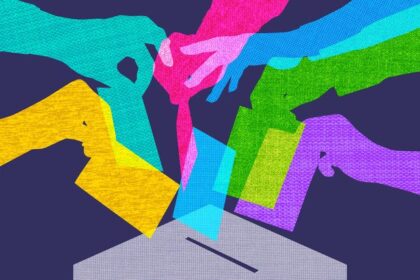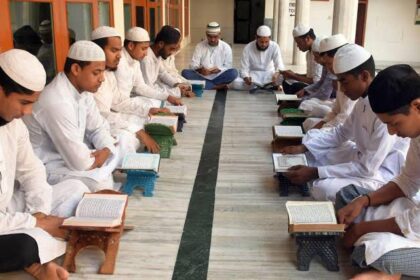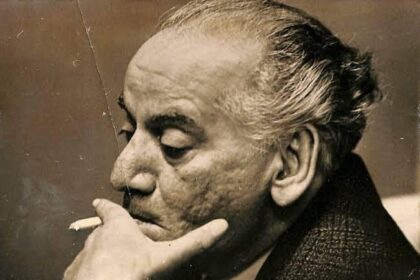The Potential for Crime in Every Human
I have always been intrigued by the idea of every human being having the capacity and potential to commit a crime. I have, thus, wondered what factors stop us from or push us towards the point where we just do it. Saying that morality is the prime reason why a lot of us do not cross the line would not entirely be accurate, as it is a known fact that none of us are born with the instinct of morality. No matter what conditions we have been nurtured in, what are the factors that make “moral” individuals rationalize their not-so-moral conduct?
The Role of Innate Emotions
All of us are born with innate human emotions like jealousy, anger, or fear, which drive criminals towards a life of crime. A valid question that arises when talking about innate human emotions is that if we all have these emotions and often experience ups and downs, then how do we not cross the line?
Fight-or-Flight Response and Criminal Behavior
Several factors play a role in shaping the minds of criminals. The most fundamental factor of these is the fight-or-flight response in specific situations. This is a psychologically explained phenomenon in which individuals respond to situations where they either find running away from the problem the best solution or stay and resist, regardless of the matter. However, when this theory of response is combined with desperation, criminals are carved.
The Crossroads of Morality and Survival
There are many situations where both the fight response and the flight response are not considered morally correct from society’s point of view. This is when people often cross the line for the sake of survival.
Crimes Beyond Desperation: The Impact of Nurture
However, it is also true that crimes are not always a product of desperate situations; in fact, the most heinous of crimes are the result of being nurtured in the wrong environment. Talking about serial criminals who commit crimes for psychological satisfaction, a vast majority of these criminals are people who were either neglected or faced certain traumas during their childhood. Hence, when we think about it in terms of equity, is it fair for these people to be given extreme punishments for the sake of deterrence? When we delve into it, punishing the individuals who have been nurtured and carved to lead a life of crime will not deter anything. Rather, even more criminals will continue getting groomed in such environments until appropriate action is taken against such environments that act as breeding grounds for criminals. This is the deep-rooted solution for the deterrence of crimes.

Legal Approaches to Crime Deterrence
Around the world, many laws are established to deter crimes, including extreme measures like the death penalty and various prison sentences, as well as rehabilitation programs for offenders. However, we rarely see laws being created to address negligent environments. Even when such laws are proposed, they are often poorly implemented or not discussed at all.
The Role of Education in Crime Rates
In third-world countries like Pakistan, education plays a vital role in the crime rates all across the nation. According to UNICEF, 22.8 million children within the age range of 5-16 are out of school in Pakistan. Even for the children who do receive education, our education system is so flawed that even today our first and foremost purpose is to teach the children how to cram information in their minds, regardless of whether they understand it or not. This mindset fosters individuals who consider things on the surface level without trying to look at them through a critical lens, always finding the quicker and easier ways in everything.
Mental Health Negligence and Its Consequences
Moving on, one of the most important factors that influence crime rates is the negligence of mental health in many societies, including Pakistan. According to the World Health Organization, almost 24 million people in Pakistan need psychiatric assistance. However, allocated resources for the screening and treatment of mental health disorders are not enough to meet the increasing needs. According to WHO data, Pakistan has only 0.19 psychiatrists per 100,000 inhabitants, one of the lowest numbers in the WHO Eastern Mediterranean Region and in the whole world. When individuals do not receive the psychological assistance that they require, it is very natural for them to erase the line of rationality and morality from their minds; hence, it is a fault on the state’s side rather than the individuals’.
Situational Influences on Criminal Behavior
When we consider how the majority of us do not cross the line that leads to a life of crime, the most eminent of the factors is our situation. Yes, all of us indeed face highs and lows in our lives that may, at times, trigger us to consider the path of crime. However, for most of us, these situations are neither dire enough nor essential for survival, at least, not enough for us to be pushed towards crime. Therefore, it might be easy for us to draw such comparisons and assume ourselves to be superior to the criminals because we control ourselves from committing an offense. The truth is that it is only our situation that is better than that of an offender.
The Role of Society in Shaping Crime
In the end, crime is not just the reflection of choices made by an individual, but rather a mirror held up to the society that shapes those choices. It is a silent testimony of negligent behaviors towards individuals, crushed dreams, and broken systems. If we are to break the cycle of crime, we would have to face the truth that it is not the mere deterrent sentencing of offenders that will save us, but a collective effort by all of us to look around us with compassion rather than judgment and target the grassroots-level issues like counseling for individuals, especially parents; standardized and good education for youth; and increasing awareness amongst them.












